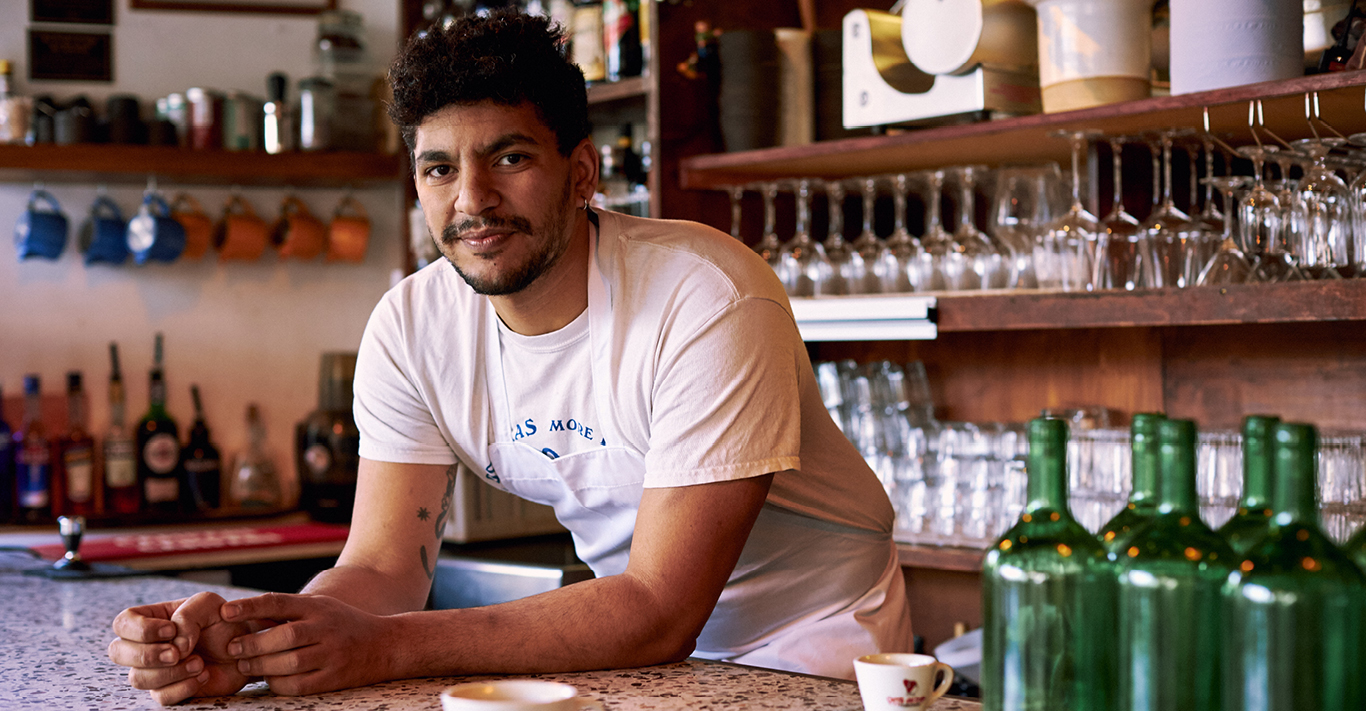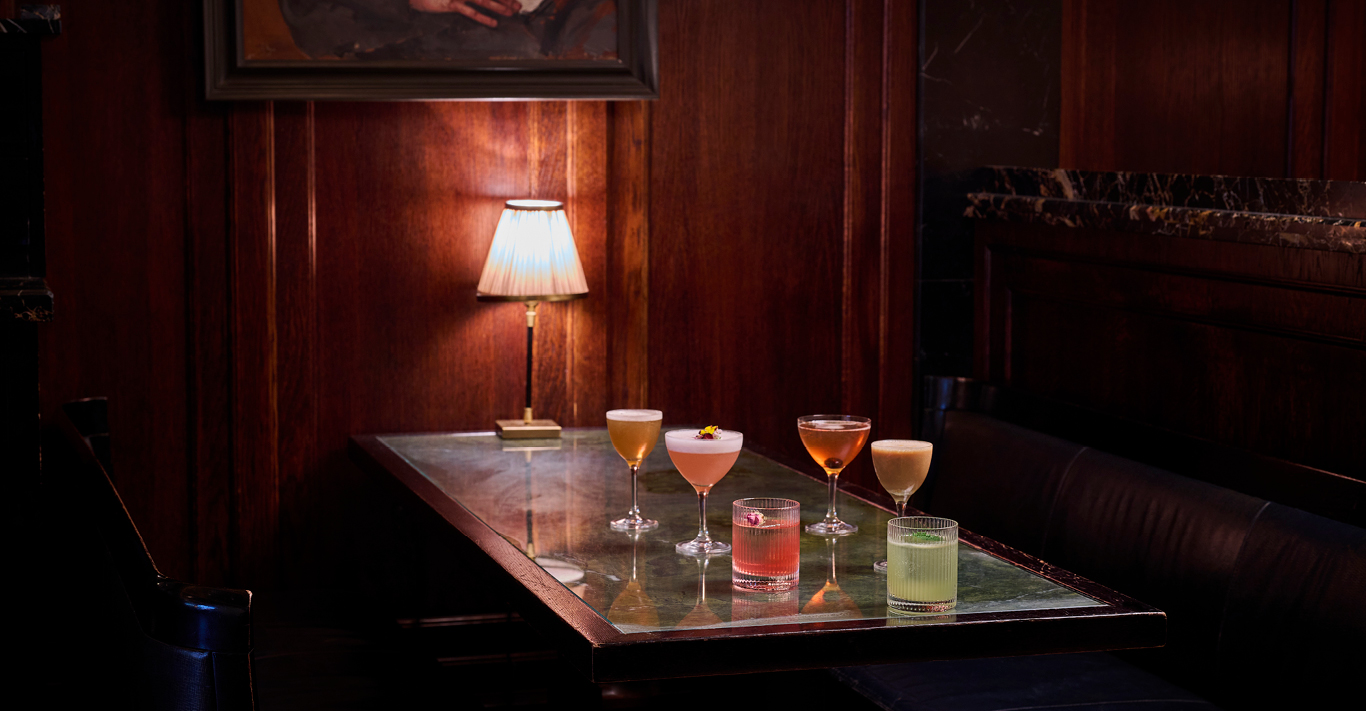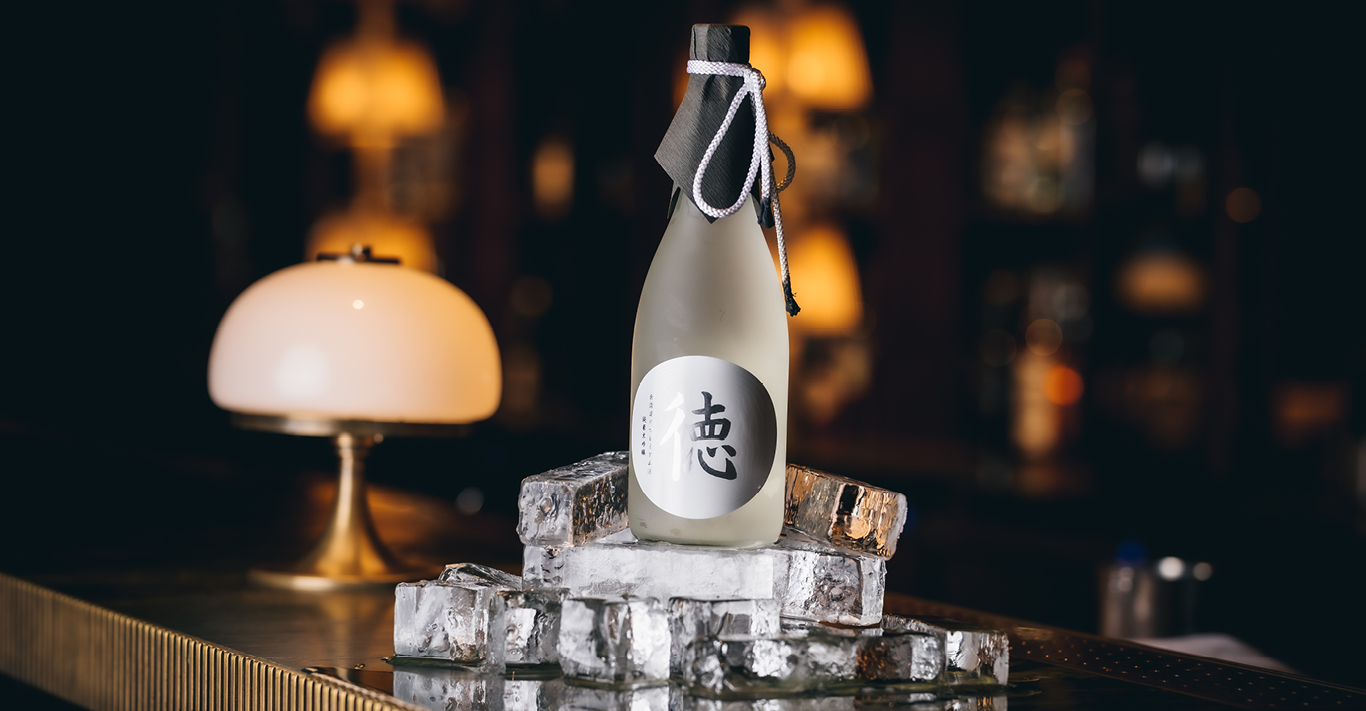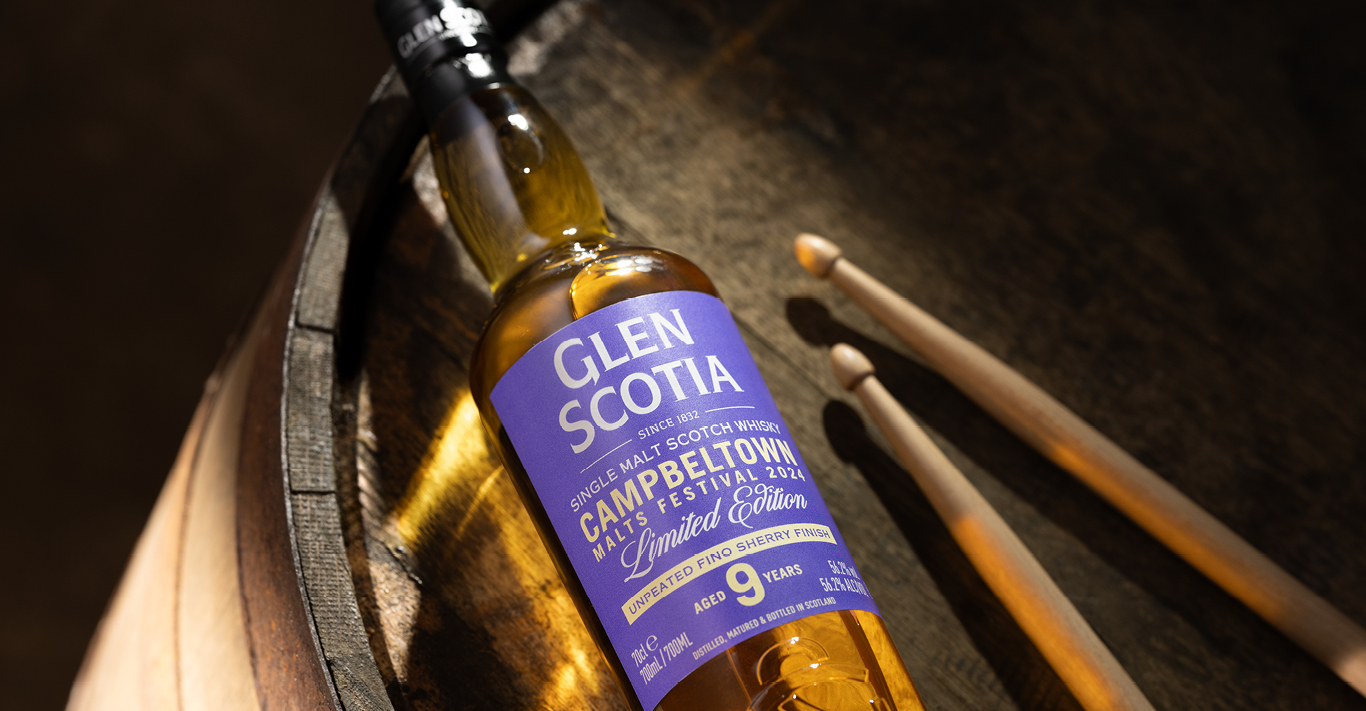WORDS
Lucy Frith
How has your training, experience and Egyptian heritage influenced how you approach the menus at Ombra?
I was born and grew up in Milan to Egyptian parents. They had a restaurant so that was my experience of “eating out”. I can’t cook any Egyptian and Arab stuff so I save that for when I visit relatives and get treated. I occasionally use some spices that I wouldn’t have used if I didn’t have the Egyptian influence. In terms of heritage, Egyptians are really hard workers, they live to work so that has affected me a bit. I am a bit of a workaholic. Today is my day off and I am working on a new menu.
You are known for your cured meats and the extensive in-house larder at Ombra. Can you talk us through your innovative approach to food and how it fits in with your vision for future menus?
In my view, Italian food is pretty simple. So the product has to be good otherwise there is nowhere to hide. We got to a stage where winter at Ombra was not so busy, so we used the time to make some cured meats; to challenge ourselves and make our lives a bit harder than it already is. I used to work for Isaac McHale – the owner of The Clove Club, he is obsessed with curing meat. My last experience before Ombra was with him. It needs to be done correctly but essentially, it’s a very simple process of salting the product and dehydrating. The salting makes the meat unwelcome for unwanted bacteria and the drying makes it more shelf stable and easier to slice – it can be overpowering if not sliced thinly. We have a wine cellar, which allows us to do significant volumes of cured meats. With Brexit and the difficulties in getting stuff over from Italy, we work with a couple of farms in Herefordshire where the farmer does everything himself: he raises and butchers the animals and delivers the meat to us so there is a very good traceability in the whole process. And we’ll use every bit of the meat we get as we have a view of no wastage.
How important is sustainability to you?
Before I became a chef, I studied for a degree in environmental science so ecology, biology and climate change is very close to the way we do things here. I appreciate that most environmentalists will have an opinion on the use of cattle, meat and methane CO2 gases, but we try to do things sustainably and don’t have a meat-heavy menu. Our cured meat is a sustainable way of serving meat. Most of our cured meats are diced and fried into pasta sauce. And we make fritto – a pillowy fried dough, which is a great vehicle for cured meats. We always have a cured meat available and we’ll serve it with this, it’s an easy thing to do. It gives us a chance to stretch the amount of cured meat we have as you only need a slice or two to accompany the fritto.
When the pandemic hit, you were one of the first to pivot, turning Ombra into a pastificio and deli. How have you had to adapt the menus to suit takeaway and delivery service?
We are lucky because what we do doesn’t need any rethinking or rebranding, so we didn’t have to come up with a new offering. We always had cured meats, we made our own pasta, we had cheeses, cold cuts and tiramisu on offer so all we had to do was get some packaging and some good-looking labels. We didn’t have to close a single day since the start of the pandemic. It wasn’t sudden, we could tell it was going to happen because Italy went on lockdown first so we could prepare. That’s how we adapted, we just carried on doing what we always did. We did a few pasta sauces that we can jar and in the last lockdown since January, we are exploring the wholesale side of things and our sauces are stocked in around 12 stores, cafes and shops stocking our pasta, sauces and focaccia. When we open the restaurant, we won’t be able to operate a deli from here so we need a place to sell our produce. The feedback at the moment is great. We have local businesses who are happy to work with us. There’s a butcher on broadway market, a café in Stoke Newington, and a couple of places in Clapham, Leighton, Highbury, Islington so we are expanding to lots of places so more people can experience Ombra.
What are the biggest lessons you have earned from the uncertain nature of the past year?
Everybody has to be on their toes, be ready and act fast. I never thought I would be doing takeaway. A lot of high-end restaurants would not have ever thought about delivering food and becoming available on food delivery platforms, Michelin restaurants on Deliveroo, which was unthinkable a year ago. People had to put pride aside. It’s not the most gratifying thing to put your food in cardboard boxes instead of on top of beautiful ceramic. We can’t really be picky, we just need to stay strong until we can get through this. Be flexible and never get too comfortable.
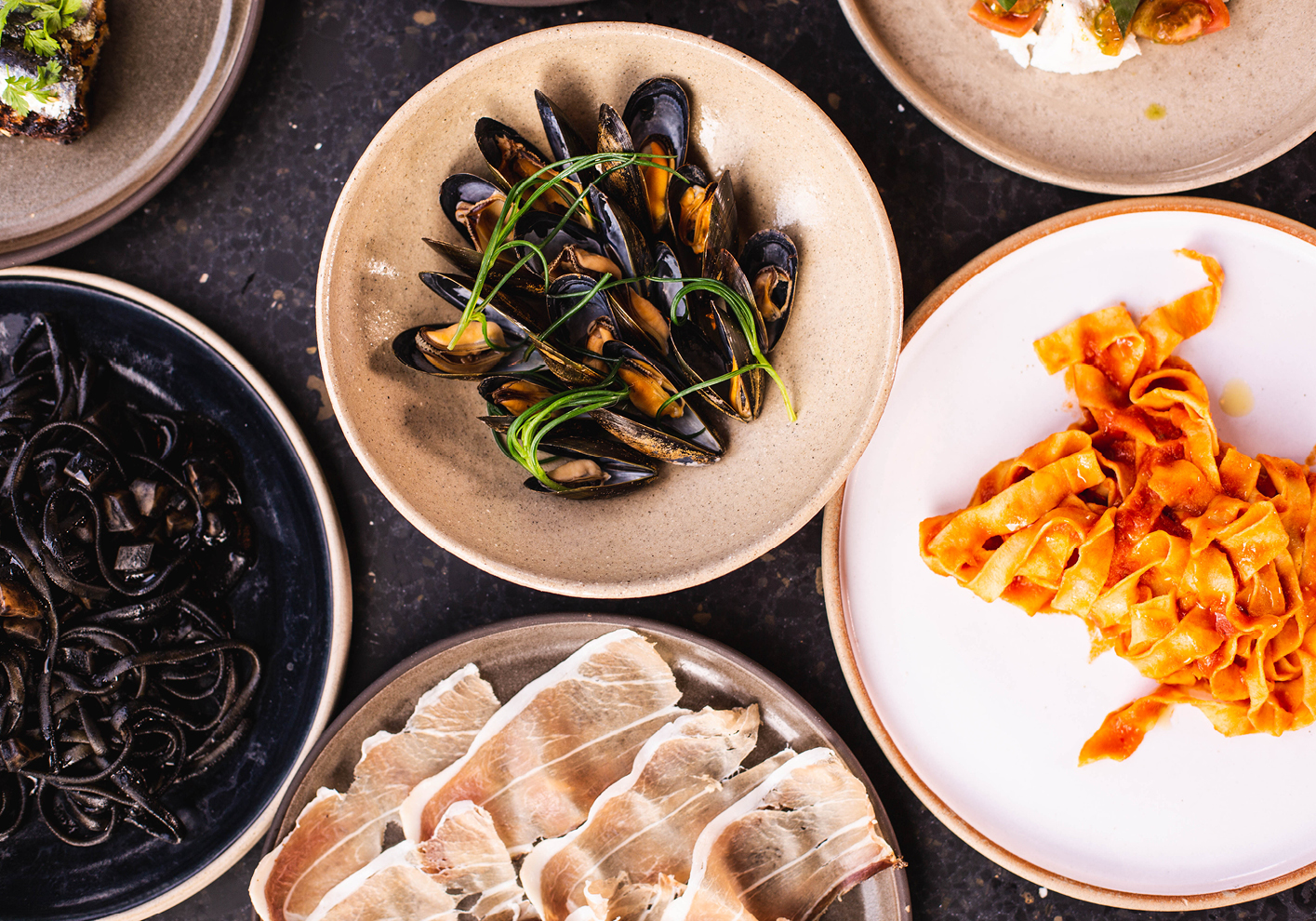
Ombra has become a huge part of daily community life with its Lasagna Sundays offering a vital sense of familiarity that many people have craved during the uncertainty. Why do you think community and familiarity has been so important, and what does it mean to you?
In east London you hardly speak to the person next door, in Italy you constantly chat to the people next to you. It was unexpected that people who live down the street started to come during lockdown (after 10 years of Ombra being on their doorstep), like a local safety point. In March 2020, there was the whole frenetic shortage of flour and yeast and so we started stocking it so people didn’t have to do crazy queues at Tesco. We had sanitiser at the door so we have lots of health and safety procedures, which reassured the customers who were concerned about health. It offered something to the community. It meant the people we had seen passing by for years even started to come in, we got to know them, they asked how we were doing and recognised what we were doing for the community. They thanked us for being there. The weekly Lasagna Sunday was a great way to break up the week and have something to look forward to. Then, when we opened it July, Ombra was a very popular location thanks to our huge outdoor terrace. In the summer, we were so busy. The outdoor space was in demand in the sense of transmissions.
Can you tell us a bit more about the mill you have brought, and your vision for creating organically grown UK grain for your pasta?
We do have a mill but we use it once a month. It is not part of our day-to-day life. In terms of heritage grain, it links to my background in environmental science in terms of the biodiversity of grains maintaining heritage grain alive, which is very important right now. At the moment, for the pasta we use some Italian stuff, we made breads in the house focaccia using English organic flour from Shipton and spelt pasta from Shipton. We made the pasta for a bit of fun to keep busy. At the moment we are too busy to experiment. It’s a domestic mill, it still does the job.
Who is your role model and how have they influenced you in your work?
My parents definitely. They emigrated to Italy from Egypt, they had no connections in Italy they just wanted to move there to have a better life for their kids. They started a business out of nothing and worked really hard.
What ingredient can you not live without and why?
I like anchovies and cumin – mainly because it is so tied to my heritage.
What item, apart from your passport, can you not travel without?
I like to travel light but, I guess my phone. When I travel, I like to check our what I can do and where I can eat at the place I am going to. To keep up to date with work in case there is something I need to know about.
Apart from Ombra, where is your favourite place to eat in London? Why?
There is a place around the corner called Bright. Normal times, I’m usually there two or three times a week. It’s really close to Ombra so when I finish, I’ll head there very often for a glass of wine and a snack before heading home. I love Brat, more for special occasions. If it’s been a particularly good week we’ll go with the staff for a celebratory dinner.
What do you like to do on a day off?
When things are open, I like to eat out. I have been cooking at home a lot. In the last 12 months I have become a Sunday cyclist. I have become one of those annoying cyclists who take up most of the road and get honked at by angry drivers. Eating, cycling, travelling.
What, apart from food, are your biggest passions?
I love music. I really like ecology. When I was doing my degree, I always thought I would be in a more academic job but my dissertation wasn’t fun. I’m still in touch with my uni mates, in fact some of them are Ombra customers.
If you could recommend one cookbook what would it be and why?
Relae by Christian Puglisi he is super opinionated, environmentally speaking, he just started a farm of his own, which he uses to supply his restaurants. He is half Italian, his restaurant is in Copenhagen, It’s a cookbook I go back to quite regularly. I like talking about it as if it is a Marvel comic book, I will talk over it as if it’s a great episode of Marvel, It’s not a recipe book as such. It’s more an insight in how and why he does things and why they should be done, in his view. He has a crazy luggage of experiences and I take a lot of inspiration from them. Foraging and things like that. It’s interesting and insightful.
If you could choose anyone from today or history, who would be your ideal dinner party guest and why?
Nina Simone, I don’t know if she will enjoy Ombra’s food, I don’t know what she was into.

